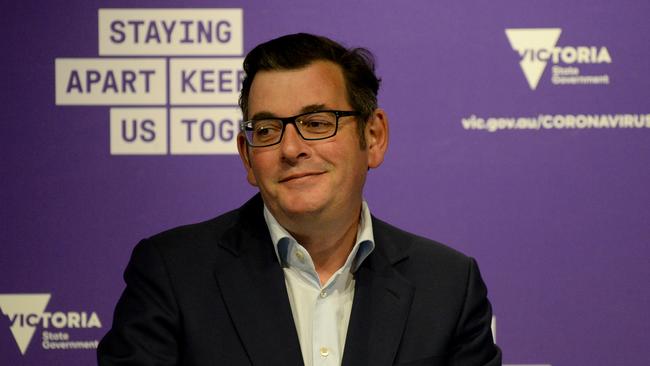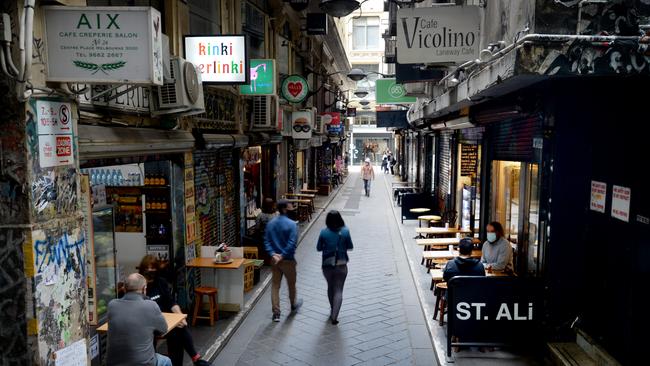Daniel Andrews did well, but so did Melbourne
Was the freedom of Melburnians ever really taken away, or were they actually using it for the public good?

So rather than viewing the lockdown in extreme ideological terms as a capricious exercise in dictatorial behaviour on the part of their Premier, perhaps the Victorian people’s response to the lockdown was in itself an exercise in freedom: a free exercise of restraint for the public good.
Despite the regulations and curfew, the success of the lockdown was largely because of the voluntary behaviour of Victorians. Compare their behaviour with parts of the US and Britain where extreme individualism and flouting of the rules have hampered any efforts to curb the pandemic. Nevertheless, various commentators and self-styled experts, both mainstream and online, have tried to encourage public disquiet and an early breakout, claiming Victoria had some of the world’s most restrictive rules, a veritable police state. What about the night time curfews all over France and Spain? Or the Italian lockdown rule which restricted movement to no more than 150m from the house, and everywhere masks are compulsory.
Yet still the anti-Andrews, largely political commentary seemed to swamp the facts. Much of that commentary was pointless because ultimately in a pandemic, it is the numbers and the complex epidemiology of tracing that matter.
Epidemiology is a discipline mired in complexity, mindful of both numbers and social/economic factors which govern responses to disease control. No one has a better handle on the numbers than University of NSW professor Mary-Louise McLaws, one of Australia and WHO’s most respected epidemiologists. McLaws was adamant that Victoria’s response to the outbreak was correct, and she was very clear about interpreting the numbers. Listening to her is a salutary lesson in listening less to the self-styled experts, and more to the real ones.

However, even the Prime Minister weighed in on numbers. Speaking on September 7, the day after Andrews announced his road map. Morrison said: “On these numbers Sydney would be under curfew again.” He was wrong. The thresholds for easing restrictions are not the same as the threshold for reintroducing restrictions, which meant according to Victoria’s health department “a comparison with Sydney is not meaningful”, and “case numbers or thresholds need to be interpreted in the broader context of the local epidemiology at that time”.
McLaws agrees. There are different thresholds for a lockdown phase as opposed to a maintenance phase. Sydney could control outbreaks with local restrictions and testing because it was in a different phase, but Melbourne was still battling with numbers going down, then up.
The numbers are based on a 14-day rolling average; a double average of the incubation period which is what most infectious disease managers use, (not three days, as do statisticians). On that basis, according to McLaws: “Victoria was way beyond the numbers where they could safely ease restrictions.” On August 2 their average was 30 times higher than NSW. On August 4, 36 times higher. On August 10, 37 times higher. By September 6, the date of the new “road map”, it had begun to drop but it was still 13 times higher than NSW. By September 28, Victoria still had 20 times higher average than NSW.
It was not until October 26 that Victoria matched NSW, which had been in the green zone 42 days to Victoria’s three. So, to suggest it should have opened sooner was simply “not on”. McLaws hoped restrictions would be eased early, but “based on epidemiological advice, rather than political pressure”.
Despite the avalanche of opinion about the lockdown, McLaws is firm in her view that epidemiologists should stick to the discipline, but she will comment on relevant social policy issues which directly impinge on the spread of disease. Whether it was about what caused the lockdown, or if and when it should be lifted, and even who should be in receipt of government help, she has strong opinions. Citing the fact that the vast majority of infections are in the under-25s, McLaws is adamant that in a pandemic young people within the casualised workforce should be paid a living wage. It allows them to live without breaking restrictions to go out to look for work. This is not pandering to the young to sit at home and do nothing; it is part of disease control, not politics or ideology.
McLaws says the mental health of the young in particular should also be a concern for epidemiology, because it is part of what she calls ‘future proofing”. Bad mental health equals a poor outcome for the whole lockdown exercise and for the future as we learn to live with the virus and restrictions. JobKeeper helped more than one young person I know and thousands of others now see the glimmer of light at the end of the lockdown tunnel.
My young friends’ brave and lonely response contrasts with that of some politicians, ideological commentators and middle-aged well-to-do people fuming at Andrews over their loss of freedom and their “right” to a social life — which ironically gave them even more time to write bitter letters and commentary.
However, Australians in general see the common good as paramount. Consequently, in the pandemic the vast majority of us have tuned out of politics and the ideological framework and can see that to voluntarily curtail your own freedom for the public good and future freedom, is a sign of true, human freedom.




Melburnians are now celebrating the final easing of their severe lockdown. They have their freedom partially restored. But was their freedom ever really taken away, or were they actually using their freedom for the public good? Yes, it has been at a very high price, but as Scott Morrison admitted in parliament this week, it was unavoidable.